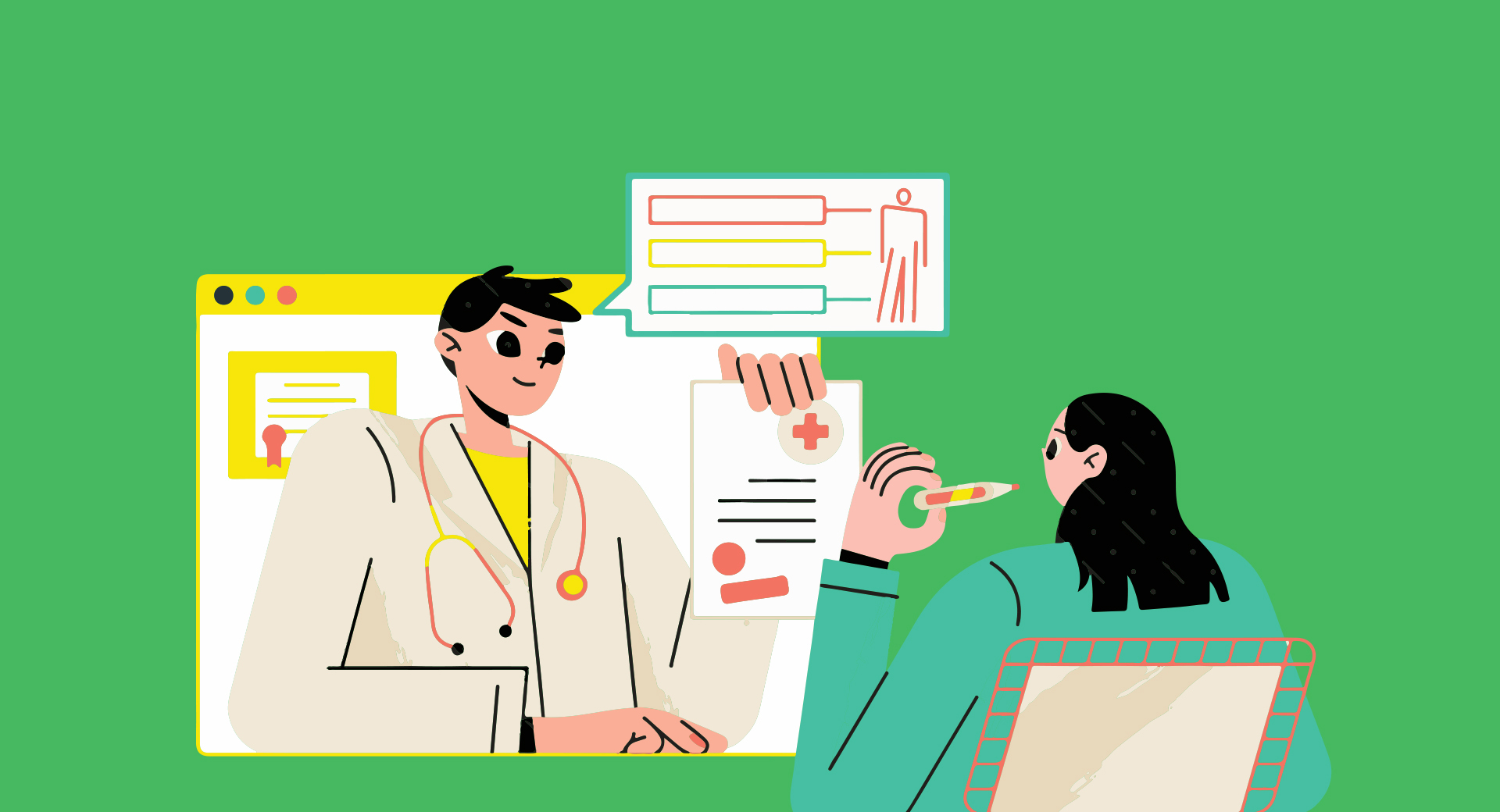The healthcare industry has come a long way with the advent of cutting-edge technology, and patient care has been revolutionized. From telemedicine to blockchain, the future of healthcare looks promising. In this blog, we will delve into the evolution of healthcare technology and its impact on patient care. We will also discuss emerging trends in healthcare technology such as IoT, virtual reality, and personalized medicine. Additionally, we will explore the role of robotics and automation in shaping the future of healthcare. Join us on this exciting journey as we discover how cutting-edge technology is enhancing patient care and changing the face of healthcare forever.
Table of contents
- The Evolution of Healthcare Technology
- Emerging Trends in Healthcare Technology
- The Role of IoT in Enhancing Patient Care
- Virtual Reality and Augmented Reality in Healthcare
- The Future of Personalized Medicine and Genomics
- How is Blockchain Revolutionizing Healthcare?
- How will Robotics and Automation Shape the Future of Healthcare?
- Conclusion
The Evolution of Healthcare Technology
The rapid evolution of healthcare technology has revolutionized patient care delivery, significantly improving patient outcomes. Healthcare technology has transformed how providers use health data, freeing up time to focus on patients. Innovations continue to improve patient experiences, bringing necessary changes and creating new solutions in the healthcare sector. These advancements benefit both providers and patients and mark a significant shift in the industry’s approach to delivering care.
A Brief History of Technological Advancements in Healthcare
The history of healthcare technology is marked by groundbreaking inventions that have significantly shaped modern healthcare. Medical applications and software solutions have played a pivotal role in transforming the healthcare industry, impacting everything from medical supplies to treatment options. These technologies have empowered healthcare professionals to make more informed treatment plans and deliver higher-quality care. Furthermore, the integration of cutting-edge healthcare technology has provided invaluable insights into patient records, resulting in improved outcomes and enhanced decision-making for healthcare providers. This rich history of technological advancements continues to drive innovation and progress in the field of health care.
The Impact of Technology on Patient Care
The integration of advanced healthcare technology has led to a significant enhancement in patient care. Healthcare technology has made communication and patient information access better, allowing customized treatment plans. It has also helped manage chronic conditions. Big data analytics have facilitated population health management, giving diverse patients improved services. Remote patient monitoring has made healthcare more accessible than ever before with innovative technology. Additionally, the continuous evolution of healthcare technology has enabled necessary changes to be made, ensuring ongoing improvements in patient care.
Here’s an article on AI in Healthcare: Revolutionizing Healthcare Through AI Technology, check it out!
Emerging Trends in Healthcare Technology
The healthcare industry is using new and improved technology to make patient care better. The use of big data analytics is helping doctors and nurses to make better decisions. They can now quickly access health data using telemedicine apps, making it much easier for patients to receive medical treatment. This helps improve the overall healthcare experience for everyone involved. Additionally, machine learning and artificial intelligence are providing the healthcare industry with valuable insights into health data, which can lead to more personalized and effective treatment plans. Innovative mental health apps are transforming the management of mental health issues, providing crucial support for patients. Additionally, the Internet of Medical Things (IoMT) is opening new frontiers in healthcare, particularly through advancements in remote patient monitoring, creating more opportunities for proactive and personalized care.
Telemedicine and Its Role in Patient Care
The remarkable expansion of telemedicine apps is revolutionizing patient access to healthcare services, ensuring timely and convenient care delivery. With seamless communication facilitated by healthcare technology, patients and healthcare providers can enhance patient outcomes. The adoption of telemedicine apps optimizes resource management and healthcare services, empowering patients to actively participate in their care for better outcomes. Remote patient monitoring through telemedicine apps provides valuable insights into patient health and treatment options, contributing to improved patient outcomes. These innovative and useful inventions are vital in shaping the future of health care, reinforcing the positive impact of telemedicine on patient care.
The Importance of Electronic Health Records
Revolutionizing patient data management, electronic health records (EHR) foster better healthcare outcomes. Healthcare technology ensures secure access to patient records, improving care coordination, and enhancing patient safety by enabling critical medical history access. EHR adoption streamlines administrative tasks, empowering healthcare professionals to focus on patient care. Additionally, cutting-edge healthcare technology enhances patient access to health information through EHR. This useful invention optimizes healthcare providers’ efficiency, paving the way for seamless data management and better patient care.
How AI and ML are Transforming Healthcare?
With the advancements in healthcare technology, artificial intelligence (AI) and machine learning (ML) are playing a pivotal role in revolutionizing patient care. Leveraging big data analytics, AI and ML have become useful inventions, providing valuable insights for personalized treatment plans. These applications are driving innovation in healthcare services, improving patient outcomes, especially in chronic conditions. Healthcare providers are now able to offer tailored care and treatment options, contributing to better patient results. The integration of AI and ML in healthcare technology is reshaping the diagnosis and treatment of various health conditions, marking a significant leap forward in the transformation of patient care.
Check out an article on Enhancing Healthcare with Custom Software Solutions.
The Role of IoT in Enhancing Patient Care
Healthcare technology is harnessing the Internet of Medical Things (IoMT) to revolutionize patient care, enabling real-time health monitoring and insightful data analytics. IoT devices, including fitness trackers, empower patients to manage their well-being by tracking activity levels and sleep patterns. Moreover, IoT technology facilitates remote monitoring of vital signs like blood pressure and heart rate, enhancing patient care beyond traditional healthcare settings. Seamless communication and data exchange through IoT contributes to improved patient care coordination, benefiting both patients and healthcare providers. The increasing integration of wearable devices in healthcare provides valuable insights into patient health, offering personalized treatment options. This useful invention is truly transforming the landscape of patient care, facilitating proactive health management and better outcomes.
Understanding the Internet of Medical Things (IoMT)
The innovative Internet of Medical Things (IoMT) is revolutionizing healthcare, reshaping patient care with advanced solutions and remote monitoring. IoMT technology empowers healthcare professionals to access real-time patient data, leading to improved treatment plans and outcomes. It enables remote patient monitoring, ensuring continuous care and timely interventions, thus enhancing patient care with actionable insights for proactive health management. This useful invention also contributes to better resource management and efficient healthcare services, benefiting both healthcare providers and patients. With the integration of big data analytics, IoMT is driving significant positive changes in the healthcare industry.
The Rise of Wearable Devices in Healthcare
The integration of wearable devices in healthcare marks a significant advancement in patient care. These devices revolutionize continuous health monitoring and data collection, providing valuable insights for proactive care. By leveraging wearable technology, healthcare providers empower patients with personalized health management and access to useful health insights. This adoption enhances patient care through seamless data sharing and remote monitoring, elevating the standard of healthcare delivery. As medical personnel embrace cutting-edge technology, wearable devices offer advanced health management and personalized treatment options, contributing to improved patient outcomes. The amalgamation of wearable devices and big data analytics facilitates a paradigm shift in healthcare, reinforcing the positive impact of innovative inventions on patient well-being.
An article about Digital Transformation in Healthcare: Adapting to the New Era might interest you.
Virtual Reality and Augmented Reality in Healthcare
Revolutionizing patient care experiences, VR/AR technology offers immersive simulations for medical professionals, aiding in pain management and mental health treatment. It also revolutionizes medical training and patient education, ultimately leading to better treatment outcomes. The integration of VR/AR solutions represents a useful invention in healthcare, providing innovative ways to enhance patient care and empower healthcare providers with advanced tools. With the aid of big data analytics, VR/AR technology is poised to further transform the healthcare landscape, offering new insights and opportunities for medical personnel to improve patient outcomes.
The Use of VR/AR in Surgical Procedures
Harnessing the power of VR/AR in surgical procedures opens up a world of possibilities. These technologies play a pivotal role in preoperative planning, empowering medical personnel with enhanced precision and reducing the risk of complications. Moreover, the immersive nature of VR/AR enhances the understanding of procedures for medical students, while also providing real-time guidance to surgeons during complex surgeries. Visualizing intricate anatomical structures becomes seamless, thanks to these useful inventions, ultimately contributing to improved patient outcomes and proactive health care. The integration of VR/AR technology marks a significant leap forward in revolutionizing the landscape of surgical procedures and patient care.
VR/AR in Patient Rehabilitation and Pain Management
Virtual reality and augmented reality (VR/AR) technology play a pivotal role in patient rehabilitation and pain management. By facilitating patient engagement in rehabilitation exercises, VR/AR enhances the overall experience and promotes better outcomes. Additionally, it provides distraction therapy for chronic pain management, thereby contributing to improved patient comfort and well-being. Moreover, VR/AR significantly improves patient compliance with rehabilitation protocols, leading to more effective and efficient recovery processes. Patients also experience reduced anxiety during painful procedures, enhancing their mental and emotional well-being. Furthermore, VR/AR technology has proven to be a useful invention in aiding mental health treatment, demonstrating its immense potential to revolutionize patient care.
Here’s an article on Streamlining Diagnosis and Care: Healthcare Software, check it out!
The Future of Personalized Medicine and Genomics
Innovative personalized medicine tailors treatment plans to individuals, optimizing health care outcomes. Leveraging genomic data allows for better prediction of patient results and enables the development of targeted therapies for chronic conditions through big data analytics. Furthermore, personalized medicine plays a vital role in enhancing population health management by driving proactive healthcare interventions, ultimately benefiting healthcare providers and medical personnel in their practices. This useful invention paves the way for advancements in mental health apps, further revolutionizing the field of patient care.
Personalized Medicine and Its Potential in Healthcare
Advancements in healthcare technology have paved the way for personalized medicine, utilizing patient data to tailor precise treatment options. This approach promotes proactive health management, contributing to better medical care outcomes and improved patient access to advanced therapies. Healthcare providers can harness valuable insights from patient records, enhancing the delivery of care. The integration of big data analytics has proven to be a useful invention in this regard, empowering healthcare providers to offer targeted and more effective treatments. Additionally, mental health apps have played a significant role in improving patient well-being, aligning with the positive impact of personalized medicine on overall health care.
The Role of Genomics in Predictive Healthcare
Advancements in genomics play a pivotal role in predictive healthcare, revolutionizing the landscape of personalized treatment strategies. Genomics facilitates the identification of genetic predispositions to diseases, enabling tailored and effective medical interventions based on individual medical histories. Moreover, it contributes significantly to population health management, fostering proactive health measures for improved community well-being. Through patient data analytics, early disease detection becomes feasible, empowering healthcare providers with invaluable insights for preventive care. The integration of genomic insights with proactive healthcare interventions empowers the shift towards preventive and personalized healthcare, marking a significant stride in patient care.
Check an article on Healthcare Cybersecurity: Protecting Patient Data.
c
How is Blockchain Revolutionizing Healthcare?
Blockchain technology is transforming healthcare by securing patient information, enhancing data interoperability, ensuring transparency of medical records, and streamlining administrative tasks. Healthcare organizations benefit from seamless communication with blockchain. On the other hand, a blockchain is a distributed database that can be used to securely store data. It operates on the principle of peer-to-peer networking, allowing information to be shared between multiple parties without the need for a centralized authority. This allows for quick and easy transactions, without the need for third-party verification or intermediaries. Thus, blockchain technology holds tremendous potential in healthcare applications such as patient identification and record management. In addition, it offers enhanced security measures against cyberattacks and fraud, making it an ideal platform for electronic health records (EHR).
The Potential of Blockchain in Securing Patient Data
Safeguarding patient records with decentralized data storage enhances security. Blockchain technology protects patient information from breaches, offering better control over health data access for patients. Healthcare professionals benefit from accessing accurate and up-to-date patient data, thanks to blockchain solutions that provide secure and efficient health information exchange. The utilization of blockchain in securing patient data revolutionizes the way healthcare providers manage information, ensuring integrity and privacy, making it a useful invention in the field of healthcare. All in all, blockchain has the potential to revolutionize healthcare by providing a secure, efficient platform for exchanging and storing patient data.
How will Robotics and Automation Shape the Future of Healthcare?
The integration of robotics and automation in healthcare is set to revolutionize the industry. These technologies optimize healthcare services, leading to better patient outcomes and quality care. Healthcare professionals benefit from robotic assistance in surgeries, while innovative robotics offer solutions for organ transplants and medical care. Automation also necessitates changes in healthcare software solutions. As a result, blockchain technology holds tremendous potential in the field of healthcare. By providing a secure and efficient platform for data storage, it helps to safeguard patient records against cyberattacks and frauds. Furthermore, blockchain solutions facilitate enhanced communication between healthcare professionals and patients, making it an essential part of modern healthcare systems
Conclusion
In conclusion, the advancements in healthcare technology have revolutionized patient care. From telemedicine to electronic health records, AI and ML to IoT, and virtual reality to personalized medicine, these cutting-edge technologies are transforming the healthcare landscape. They have improved access to healthcare services, enhanced diagnostics and treatment methods, and increased patient engagement and satisfaction. The future holds even more promise with the potential of blockchain, robotics, and automation in healthcare. To stay updated with the latest trends and leverage these technologies for the benefit of your patients, get in touch with us today. Let’s collaborate and create a future where healthcare is efficient, effective, and personalized.



